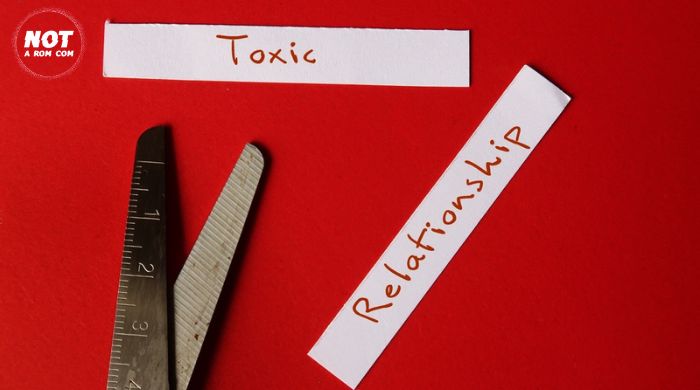Understanding how and when to leave a toxic relationship when you live together can be both daunting and liberating. This guide will support you in navigating the breakup process, dealing with the emotional fallout, and moving forward with your life.
Key Takeaways
- Recognize the signs: Some signs suggest breaking up and moving out is the right decision. Look for patterns that undermine your self-esteem and isolate you from your loved ones.
- Prepare thoroughly: Emotional preparation and building a support network are crucial. Talk to a professional, and carefully plan your exit strategy to ensure your safety.
- Embrace self-care: Post-breakup, focus on healing and rebuilding your life. Engage in self-compassion practices and strive for emotional independence, understanding that recovery is a gradual process.
- Maintain your well-being: The ultimate goal is to nurture your wellness and health through self-care, supportive relationships, and positive life changes.
Table of Contents
Understanding Toxic Relationships

A toxic relationship can profoundly impact your mental health and daily life, making it crucial to recognize and address them. They often characterized by behaviors that diminish your self-esteem, isolate you from your support system, and create a cycle of dependency and negativity.
It’s not just about frequent arguments; it’s about the consistent negative impact on your well-being and happiness. Understanding the dynamics and signs of a toxic relationship is the first step in acknowledging that you deserve better and preparing for a change.
Signs you’re in a toxic relationship
- Constant criticism and generally unhappy when you’re doing well.
- Your partner denies things that have happened or twist reality to make you doubt your memories, perception, or sanity.
- You feel constantly anxious about how your partner will react to things you say or do, leading you to tiptoe around them to avoid conflict.
- Lack of respect for boundaries.
- Instead of feeling uplifted, spending time with your partner leaves you feeling emotionally drained and worse about yourself.
- You find that you’re the only one putting effort into the relationship, whether making plans, communicating, or trying to resolve issues.
- Your partner uses guilt, threats, or emotional blackmail to get what they want or to influence your actions and decisions.
- You’re afraid of your partner’s reactions to conflict and everyday situations, indicating a deeper problem of control and intimidation.
- Healthy jealousy is normal, but in a toxic relationship, it’s excessive, leading to accusations, controlling behavior, and unwarranted suspicion.
- Your partner does not respect your need for privacy and personal space, often intruding into personal matters without consent.
Also Read About: How to Glow Up After a Breakup
How to Leave a Toxic Relationship?
Preparing to leave an unhealthy relationship, especially when you live together, involves emotional preparation, building a support system, and seeking professional help if necessary. It’s a significant step toward reclaiming your autonomy.
1. Surround yourself with support
This is invaluable when leaving a relationship. Stay calm, reach out and spend time with friends, family members, or even a social worker who can provide emotional support and practical assistance. These individuals can offer perspective, help with living arrangements, and give you the strength to follow through with your decision. Remember, you’re not alone, and having a support network can make a significant difference in navigating this challenging time.
2. Seeking professional help
A mental health professional can provide guidance, help you deal with emotions, and offer strategies for coping with the breakup process. They can also assist in developing a safety plan if leaving involves risks. Therapy can be a space to rebuild your self-esteem and plan for a healthy, independent future.
3. Consider your safety
It’s difficult to break up with someone you love, but your safety is paramount. Start by assessing your situation and considering the safest way to have the breakup conversation, whether in person, over the phone, or through another medium.
If there’s a risk of violence or severe manipulation, it might be safer to plan your exit without your partner’s knowledge. Confidentially reach out to professionals or organizations specializing in domestic violence for advice on how to leave safely. Having a plan for sleeping arrangements, how you’ll manage shared bills, and how you’ll handle legal custody, such as co-ownership or child custody, is crucial.
4. Dealing with the aftermath
Following the end of a relationship, a clean break is exactly what you need. As you navigate your new independence, you may experience a whirlwind of emotions, from relief to grief.
This phase is about recovery, finding your footing, and building a foundation for a healthier future. Remember, it’s natural to feel various emotions during this time. Allowing yourself to feel, understand, and process these emotions is crucial for healing.
5. Navigating emotional challenges
After leaving a toxic relationship, you might face emotional challenges such as grief, loss, and loneliness. These feelings are normal and part of the healing process. Friends, family, and professionals can offer the understanding and encouragement you need.
Engaging in self-care practices and activities that bring you joy can also help manage these emotions. Give yourself permission to grieve the loss of the relationship while recognizing the strength it took to leave.
6. Understanding the grieving process
The grieving process after a traditional breakup can involve stages of denial, anger, bargaining, depression, and acceptance. Each person’s journey through these stages is unique. Acknowledging and accepting your feelings at each stage can be helpful.
Remember, moving through grief is not a linear process; it’s okay to have good days and bad days. Seeking therapy or joining a support group can help you navigate these stages.
7. Rebuilding your life
Rebuilding your life after a harmful relationship is an opportunity to rediscover who you are and what you want from life. This can involve setting new goals, exploring interests, and making new connections. Establishing a routine that includes time for self-care, hobbies, and social activities can help you build a fulfilling life.
Consider what boundaries and standards you want to set for your next relationship. This is a time for growth and self-discovery, allowing you to move forward with resilience and hope for healthier relationships in the future.
How to Maintain Your Wellbeing After Leaving a Toxic Relationship?
Focusing on your well-being after leaving a toxic relationship and navigating the initial aftermath becomes essential. This phase is about healing from the emotional turmoil, rebuilding your self-esteem, and setting the foundation for a healthy, fulfilling life.
It involves engaging in self-care practices, spending time with supportive friends and family, and rediscovering your interests and passions. The journey of self-discovery and healing can empower you to form healthier relationships in the future and find joy in your independence.
1. Begin to heal
Self-care is crucial for healing after leaving a toxic relationship. It means taking time for activities that nourish your body, mind, and spirit. This can include exercise, meditation, pursuing hobbies, or simply allowing yourself to rest. Self-care helps rebuild your self-worth and reduces stress, enabling you to process your emotions and move forward. Remember, healing is not linear, and being gentle with yourself during this time is important.
2. Moving forward
Staying positive after a significant life change involves focusing on the future and embracing the opportunities that come with your newfound independence. It’s about setting goals for your personal and professional life, staying hopeful about relationships, and finding fulfilment outside of a partnership. Surround yourself with positivity, whether through uplifting friendships, engaging in activities that bring you joy, or seeking inspiration from books, podcasts, or other resources. Looking forward with optimism can help you navigate the challenges of rebuilding your life and lead you towards a happier, healthier future.
Maintaining your well-being is not just about recovering from the past but about building a future where you thrive. Each step towards self-care and positivity paves the way for a life filled with respect, love, and genuine happiness.
Conclusion
Leaving a toxic relationship, especially when entwined through shared living space, is undoubtedly challenging but profoundly necessary for your personal growth and well-being. This journey requires recognizing the toxic dynamics, preparing emotionally and practically, and taking definitive steps towards a safer and healthier future. Remember, the essence of this transition is rooted in self-care and the belief in a better, happier life ahead. Your courage to move forward reflects a commitment to your well-being and a hopeful outlook towards forming healthier relationships.
Natalie Gomez, the insightful creator and author behind NotARomCom, is a passionate relationship enthusiast, fervent writer, and ardent advocate for love in all its forms. With a heart full of compassion and a mind brimming with curiosity, Natalie embarked on a journey to explore the intricate dynamics of relationships, love, and personal growth.

